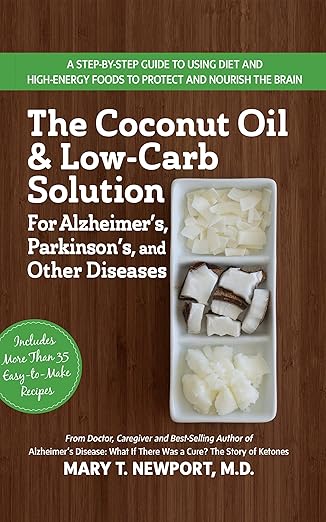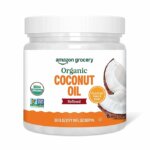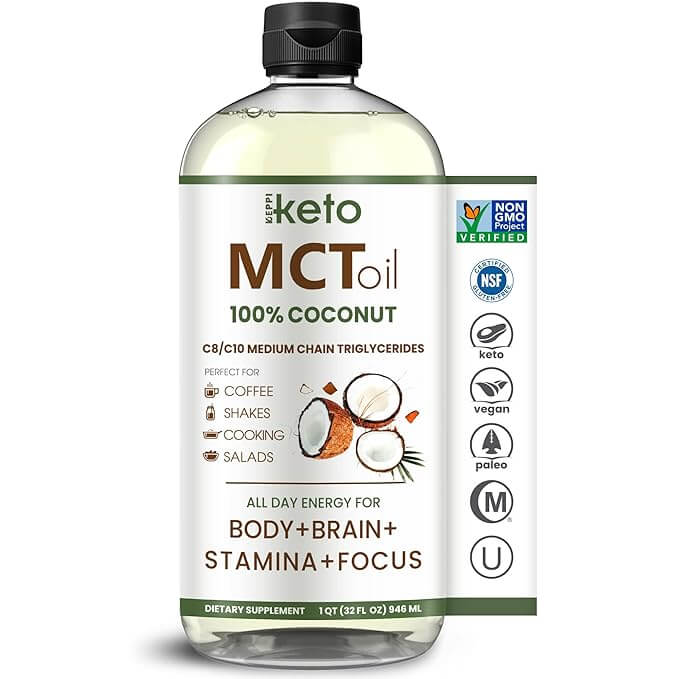Day 1:
We asked our mom to write the alphabet before starting coconut oil.
She stared blankly. The word “alphabet” meant nothing.
But when we gently started singing “A-B-C…,” her eyes lit up.
It took us 8 minutes to complete it, with considerable assistance.
Day 5:
Just five days into her new morning routine with coconut oil, we tried again.
This time, she smiled and sang the whole thing on her own.
She wrote it out in just 6 minutes, with barely any prompting.
“A-B-C-D-E…” she sang, smiling like it was second nature.
Five days earlier, the word alphabet didn’t even register.
It wasn’t perfect. But it was progress—and in Alzheimer’s, even a slight improvement feels like a miracle in the making.
- Your body makes ketones when it breaks down fat during fasting, exercise, or a low-carb diet.
- They’re a clean, efficient fuel the brain can use even when glucose isn’t working.
- They’re found naturally in breast milk and added to baby formula to support brain development.
- Coconut oil and MCT oil are easy, affordable ways to help the body start producing ketones today.
We began with organic, refined coconut oil because it’s readily available in most grocery stores. After seeing improvement, we added MCT oil—and now our mom takes the blend Dr. Newport recommends.
Why both?
- Think of coconut oil as a slow-burning log—it takes longer to catch but keeps the fire going for up to 8 hours.
- Think of MCT oil as kindling—it lights quickly and burns bright, peaking in about 3 hours.
MCT oil gets things going. Coconut oil keeps it going. Together, they create a steady, sustained energy source for the brain.
As Dr. Newport puts it:
“Neurons that appear dead may simply be starving. Ketones provide the fuel to wake them up.”
And that’s precisely what it felt like we were witnessing.
- No white bread, white rice, or sugary cereals
- No cookies, pastries, or sweetened yogurts
- Plenty of healthy fats and fiber-rich vegetables
- Natural sweetness from apples with peanut butter and other whole foods
If you want ketones to help, sugar has to take a back seat.
A Small Change That Changed Everything
Since that first week in 2023, our mom has taken ketones every single day.
– She’s more alert.
– She joins conversations again.
– She remembers details that used to slip away.
“I didn’t expect such a clear response,” our Dad said.
“I just wanted to try something new—but this gave us a piece of her back.” – Kim.
It’s not magic. It’s not a cure.
But it’s a tool—and it has made a meaningful difference in our mom’s life.
Before You Get Started
We understand the eagerness to start, especially when hope is at stake. But remember, patience is key. Your loved one’s body needs time to adjust to the presence of ketones.
Start here:
The Coconut Oil & Low-Carb Solution by Mary T. Newport, MD
This book walks you through:
- Why is easing into ketones essential
- How to avoid digestive issues (yes, giving too much too soon can cause explosive diarrhea)
- How to build up to a therapeutic amount
- Ways to incorporate coconut oil into your everyday meals
We read it cover to cover and followed the plan.
And yes—it worked.
Yes, explosive diarrhea is a real side effect.
Start slow. Dr. Newport’s book provides clear instructions on how to do it safely.






